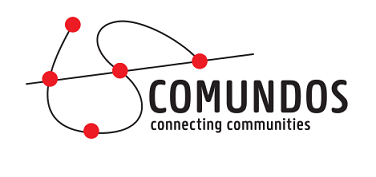Episode 04: Comundos, A Story of Media Literacy for All
In this edition of the podcast, Director of Comundos Bart Vetsuypens is interviewed. He explains how the non-profit got started in 2014, and talks about the work that it continues to do in the areas of media literacy and digital storytelling.
Enjoy!
Transcript:
Rejoice Aniemeka (RA): Welcome to this Comundos Podcast, where we interview digital storytellers and people involved in Comundos. We ask them questions related to their stories to deepen our understanding of the content and messages.
My name is Rejoice Aniemeka.
For this episode we are honored to have Bart Vetsuypens who has been coordinating Comundos for over 8 years. It´s a pleasure to have you, Mr. Bart.
Bart Vetsuypens (BV): Thank you for having me on your podcast, Ms. Rejoice.
RA: So tell us, what is Comundos really about?
BV: Well, what to do with a computer who has no access to the Internet? We promote media literacy and 'Digital Storytelling', using free software and accessible technologies, whether or not connected to the Internet. This has been our strategy to teach young people to tell and share their 'digital stories'; at the same time making them critically reflect on their role as a citizen, in accordance with the Sustainable Development Goals (SDGs).
RA: : I must say that this a very important task Comundos is fulfilling for the world at large. So how did Comundos start this journey of making such a notable impact?
BV: We started back in 2014 with a network of agricultural schools and NGOs in the Philippines, Mozambique, Guatemala, and Brazil. That was our first 3-year program with the NGO Disop, a Belgian NGO. We gave the teachers insights on what to do with a computer who has no Internet, using audio, images, and video for better teaching methods. After that, we got involved in a rural network of schools in Cameroon, to insert technology in isolated, rural schools. So, we started with digital inclusion, the basics, to end with digital storytelling. And now, we are even teaching post-doctoral researchers on how to disseminate their research in a popular way to a greater public.
RA: This is quite inspiring. Please tell us more on how Comundos teaches these courses. How do they teach?
BV: Well, the course is set up in 4 days, where every day we dive into a new practice. Theory and practical skills. We teach them how to make a compelling story, record their voice- over, put a background sound, and at last, we add pictures, videos, to enhance the story. And we edit it all in a video program.
RA: I strongly believe that for every action, there is an expectation, that there is a reason for every action. So, tell us, what does Comundos want to achieve with this?
BV: We know it makes people happy when they go through the course. It demystifies how communication works. They have a better view on what professionals are looking for when a journalist wants to make a story. But it also makes them to know themselves better: their talents, and limits... which is also part of education. Some discover their writing skills, and others love to play with technology.
Journalism in most developing countries is still too much left to a group with higher incomes, who have access to good, but expensive, education. In many countries, commercial television channels are still the best references for television. It is time that people are aware of the necessity of good public television, and that it should be cherished. I remember the time when I was in Recife, Brazil. In a way of talking, that public television was somewhere hidden in a classroom of the university.
As in Belgium, the best media channels are public television, with lots of good documentaries, debates that help you make your own opinion, based on facts. In other words, it molds Belgian society in a critical, but healthy way.
RA: Thank you so much, Mr. Bart, for stopping by to enlighten us about Comundos.
BV: Thank you very much, to be on your podcast, Ms. Rejoice, for it was a pleasure being here.
RA: I hope you've learned a lot about the activities of Comundos. Do well to visit their website at www.Comundos.org for more.
I remain Rejoice Aniemeka. Many thanks for listening.
Transcription Edits: Andru Shively (VUB)
A gift for Comundos
Over the years, Comundos has helped remote communities around the world by teaching critical thinking, media literacy and the use of communication technology.
To do this effectively, we need your support for computers, translations, courses and social media management.
Thank you .
BE11 1030 2973 8248




